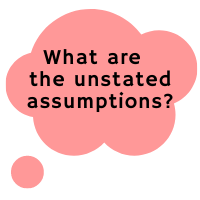

What is Critical Thinking?
Critical thinking is when you question “ideas, theories, assumptions, or the validity of information” (University of Technology Sydney, 2018, para 1) and the academic context of tertiary learning encourages this. Critical thinking pushes you to reflect more deeply on what you are studying. Many would agree that critical thinking is the most important skill to cultivate toward developing your academic autonomy.
Elements of Critical Thinking
There are five main components to critical thinking: reasoning, identifying, analysing, evaluating and reflecting. While some scholars like to rank these components in terms of what comes first, critical thinking is a complex skill where all of these components work together to create a complete thinking model. reasoning, you may also need to reflect on your own biases and analyse evaluation (Monash University, 2020a).

(Monash University, 2020b)
Critical Thinkers Ask These Questions
(UNSW Sydney, 2019a)







Avondale University acknowledges our Sovereign God as Creator and Provider of all things. We respectfully acknowledge the Awabakal and Darramuragal people as the traditional custodians of the lands on which we live, work, study and worship across our Lake Macquarie and Sydney campuses. We pay our respects to Elders past, present and emerging, and extend that respect to all First Nations People.
Avondale University is a member of the worldwide Seventh-day Adventist system of universities and colleges.
CRICOS Provider No.: 02731D. RTO: 91191. TEQSA: PRV12015. ABN: 53 108 186 401.
© Avondale University Ltd 2025